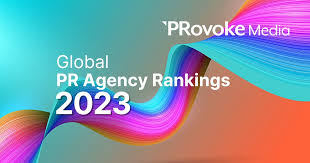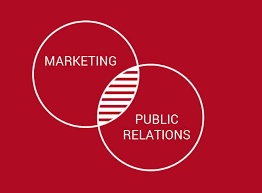Exploring the Top PR Firms Worldwide: Leaders in Global Communication
The Leading PR Firms Making a Global Impact
Public Relations (PR) firms play a crucial role in shaping the reputation and communication strategies of businesses worldwide. Here are some of the top PR firms that have established themselves as industry leaders:
Edelman
Edelman is one of the largest PR firms globally, known for its integrated approach to communication and strategic counsel. With offices in over 60 countries, Edelman has a strong presence in key markets around the world.
Weber Shandwick
Weber Shandwick is renowned for its creative campaigns and innovative storytelling techniques. The firm has won numerous awards for its work in areas such as crisis management, social media, and corporate reputation.
FleishmanHillard
FleishmanHillard is recognised for its expertise in corporate communications, public affairs, and digital marketing. The firm’s global network allows it to deliver impactful campaigns that resonate with diverse audiences.
Ketchum
Ketchum is known for its strategic insights and data-driven approach to PR. The firm collaborates with clients across various industries to develop tailored communication strategies that drive results.
Burson Cohn & Wolfe (BCW)
BCW is a merger of two leading PR agencies, Burson-Marsteller and Cohn & Wolfe, creating a powerhouse in the industry. The firm specialises in brand strategy, crisis management, and influencer engagement.
These top PR firms have demonstrated excellence in delivering impactful communication solutions to clients worldwide. Their innovative approaches and commitment to driving results have earned them a reputation as industry leaders.
7 Essential Tips for Choosing Leading PR Firms Globally
- Research the reputation and client list of top PR firms.
- Consider the specific industry expertise of each PR firm.
- Look for case studies or success stories to understand their capabilities.
- Evaluate the communication style and approach of the PR firms.
- Check for any awards or recognition received by the PR firms.
- Compare pricing structures and services offered by different PR firms.
- Seek recommendations or reviews from clients who have worked with top PR firms.
Research the reputation and client list of top PR firms.
When looking for the top PR firms in the world, it is essential to thoroughly research their reputation and client list. Understanding how these firms are perceived in the industry and the types of clients they work with can provide valuable insights into their expertise and capabilities. By examining their track record and the brands they have successfully represented, you can gauge their level of experience and effectiveness in delivering results. Researching the reputation and client list of top PR firms is a crucial step in identifying the right partner to help elevate your brand’s communication strategy and achieve your business objectives.
Consider the specific industry expertise of each PR firm.
When evaluating the top PR firms in the world, it is essential to consider their specific industry expertise. Each PR firm may have strengths in particular sectors, such as technology, healthcare, finance, or consumer goods. By understanding the industry focus of a PR firm, businesses can ensure that they partner with an agency that has the knowledge and experience to effectively communicate their message to the target audience. Choosing a PR firm with expertise in the relevant industry can lead to more tailored and impactful communication strategies that resonate with stakeholders and drive success.
Look for case studies or success stories to understand their capabilities.
When researching the top PR firms in the world, it is essential to look for case studies or success stories to gain insight into their capabilities. By reviewing past projects and campaigns, you can assess how these firms have helped their clients achieve their communication goals and navigate challenges effectively. Case studies provide valuable examples of the firm’s strategic approach, creativity, and results-driven practices. Understanding their track record through real-world examples can help you make an informed decision when selecting a PR partner that aligns with your business objectives.
Evaluate the communication style and approach of the PR firms.
When considering the top PR firms in the world, it is essential to evaluate their communication style and approach. The way a PR firm communicates with clients, stakeholders, and the public can greatly impact the success of their campaigns. A firm’s communication style should be clear, transparent, and tailored to meet the specific needs of each client. Additionally, assessing how a PR firm approaches different communication channels, such as traditional media, social media, and influencer partnerships, can provide valuable insights into their strategic capabilities. By carefully evaluating the communication style and approach of PR firms, businesses can make informed decisions on selecting a partner that aligns with their goals and values.
Check for any awards or recognition received by the PR firms.
When researching the top PR firms in the world, it is essential to check for any awards or recognition they have received. Awards and accolades serve as a testament to the firm’s excellence, innovation, and impact within the industry. Firms that have been recognised for their outstanding work are more likely to deliver high-quality services and results for their clients. By looking into the awards and recognition received by PR firms, you can gain valuable insights into their expertise, reputation, and ability to deliver successful communication strategies.
Compare pricing structures and services offered by different PR firms.
When looking for the top PR firms in the world, it is essential to compare pricing structures and services offered by different agencies. Understanding the cost implications and services provided by each PR firm can help businesses make informed decisions that align with their communication goals and budget constraints. By evaluating pricing structures alongside the range of services offered, companies can identify the best fit that meets their specific needs and maximises the value they receive from their chosen PR partner.
Seek recommendations or reviews from clients who have worked with top PR firms.
When looking for the best PR firm to partner with, seeking recommendations or reviews from clients who have previously worked with top PR firms can provide valuable insights into the firm’s capabilities and performance. Client testimonials offer firsthand accounts of the firm’s strengths, communication style, and ability to deliver results. By listening to the experiences of others, businesses can make informed decisions and choose a PR partner that aligns with their goals and values.












